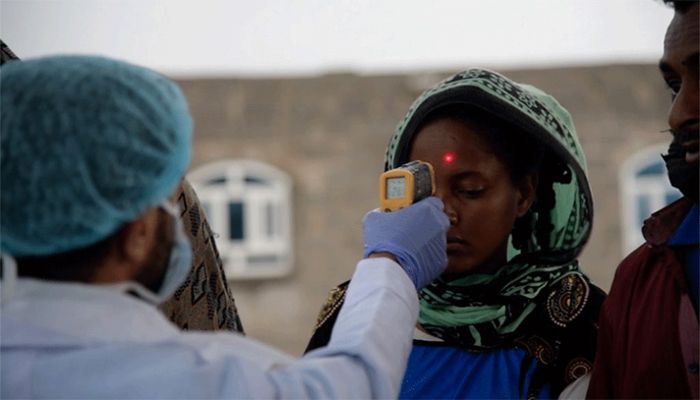
Desk Report
Publish: 06 Sep 2020, 11:43 am

The first famines of the coronavirus era may soon have reached four chronically food-deprived conflict areas—Yemen, South Sudan, north-eastern Nigeria, and the Democratic Republic of Congo—the United Nations' top humanitarian official warned, the New York Times reports.
In a letter to members of the Security Council, the official, Mark Lowcock, said the risk of famines in these areas had been intensified by “natural disasters, economic shocks and public-health crises, all compounded by the Covid-19 pandemic.” Together, he said, “these factors are endangering the lives of millions of women, men and children.”
The letter, which was not made public, was forwarded to the Security Council by Lowcock's office on Friday in its 2018 resolution requesting reports on the "danger of conflict-induced famine and widespread food insecurity." The New York Times has seen a copy of the letter.
UN officials have said before that all four areas are vulnerable to acute food shortages due to persistent armed conflicts and the failure of humanitarian aid providers to freely distribute aid.
In April, David Beasley, Executive Director of the United Nations' World Food Programme, warned the Security Council that while the world was dealing with the coronavirus pandemic, "we are also on the brink of a hunger pandemic."
Mark Lowcock, UN Undersecretary for Humanitarian Affairs, effectively exacerbated the alarm that lack of support for emergency relief and the problems caused by the coronavirus outbreak have now moved some of the world's most vulnerable communities closer to famine.
Under a control scheme for the evaluation of hunger crises known as the Integrated Food Security Classification or IPC scale, Phase 3 is a crisis, Phase 4 is an emergency, and Phase 5 is famine — the worst — marked by "starvation, death, destitution and extremely critical acute malnutrition."
In Yemen, where famine was prevented two years ago, Lowcock said, "The risk is slowly coming back." The country, the poorest in the Arab world, has been devastated for more than five years by a civil war between the Houthi rebels and a Saudi-backed military coalition that left 80 per cent of the country dependent on foreign aid.
Lowcock said that the currency of Yemen has effectively collapsed, while food costs have risen and drinking water prices have more than doubled since April. In 16 districts of the country, almost all in Houthi-controlled areas, he said, the hunger emergency is now in phase 4—one move away from famine.
In the eastern part of the Democratic Republic of Congo, where decades of conflict have worsened this year, Lowcock said 21 million people are living in “crisis or worse levels of food insecurity.”
In the north-eastern Nigerian states of Borno, Adamawa and Yobe, which have been roiled for years by armed extremist militants, Lowcock said that more than 10 million people — four out of five — now need humanitarian assistance and protection.
He said more than 1.2 million civilians in north-eastern Nigeria "remain largely inaccessible to humanitarian agencies due to violence and deliberate interference by non-state armed groups," with more than 15 aid workers killed in the past year.
In South Sudan, which has been upended by seven years of civil war, a recent upsurge in violence has left more than 1.4 million people “facing a crisis or worse levels of food insecurity,” Lowcock said. Two years after the threat of famine was narrowly averted in South Sudan, he said, “parts of the country are again deteriorating sharply.”
Subscribe Shampratik Deshkal Youtube Channel
© 2024 Shampratik Deshkal All Rights Reserved. Design & Developed By Root Soft Bangladesh